
Akamas Peninsula: Nature's Unspoiled Jewel in Cyprus
Akamas Peninsula is a stunning, unspoiled region located on the western tip of Cyprus. This natural paradise is renowned for its breathtaking landscapes, pristine beaches, and diverse wildlife. The area is a haven for nature lovers and adventure seekers alike, offering a unique blend of rugged terrain and serene coastal beauty. Visitors to the Akamas Peninsula can explore the famous Avakas Gorge, a dramatic limestone canyon with impressive rock formations and lush greenery. The gorge is a popular spot for hiking and photography, providing a perfect opportunity to immerse yourself in the natural wonders of the area. Another must-see is the Baths of Aphrodite, a tranquil pool surrounded by lush vegetation and steeped in mythology, said to be the bathing place of the goddess of love. The Akamas Peninsula is also home to the Lara Beach, a vital nesting site for the endangered loggerhead and green turtles. This protected area offers a rare chance to witness these majestic creatures in their natural habitat. For those interested in marine life, the crystal-clear waters around the peninsula are perfect for snorkeling and diving, revealing vibrant underwater ecosystems teeming with life. Whether you're hiking through the scenic trails, relaxing on the secluded beaches, or exploring the rich biodiversity, the Akamas Peninsula promises an unforgettable experience for every visitor.
Local tips in Akamas Peninsula
- Wear comfortable hiking shoes for exploring the rugged terrain of the Avakas Gorge.
- Visit early in the morning or late in the afternoon to avoid the midday heat.
- Bring plenty of water and snacks, as facilities are limited within the peninsula.
- Respect the protected areas, especially the turtle nesting sites at Lara Beach.
- Consider renting a 4x4 vehicle to access some of the more remote areas of the peninsula.
- Don't forget your snorkel gear to explore the vibrant underwater life around the peninsula.
Akamas Peninsula: Nature's Unspoiled Jewel in Cyprus
Akamas Peninsula is a stunning, unspoiled region located on the western tip of Cyprus. This natural paradise is renowned for its breathtaking landscapes, pristine beaches, and diverse wildlife. The area is a haven for nature lovers and adventure seekers alike, offering a unique blend of rugged terrain and serene coastal beauty. Visitors to the Akamas Peninsula can explore the famous Avakas Gorge, a dramatic limestone canyon with impressive rock formations and lush greenery. The gorge is a popular spot for hiking and photography, providing a perfect opportunity to immerse yourself in the natural wonders of the area. Another must-see is the Baths of Aphrodite, a tranquil pool surrounded by lush vegetation and steeped in mythology, said to be the bathing place of the goddess of love. The Akamas Peninsula is also home to the Lara Beach, a vital nesting site for the endangered loggerhead and green turtles. This protected area offers a rare chance to witness these majestic creatures in their natural habitat. For those interested in marine life, the crystal-clear waters around the peninsula are perfect for snorkeling and diving, revealing vibrant underwater ecosystems teeming with life. Whether you're hiking through the scenic trails, relaxing on the secluded beaches, or exploring the rich biodiversity, the Akamas Peninsula promises an unforgettable experience for every visitor.
When is the best time to go to Akamas Peninsula?
Iconic landmarks you can’t miss
Petra tou Romiou (Aphrodite's Rock)
Discover the legendary birthplace of Aphrodite at Petra tou Romiou, a stunning historical landmark on the shores of Cyprus, steeped in myth and natural beauty.

Archaeological Site of Nea Paphos
Explore the Archaeological Site of Nea Paphos, a UNESCO World Heritage site filled with stunning mosaics and rich ancient history in Cyprus.
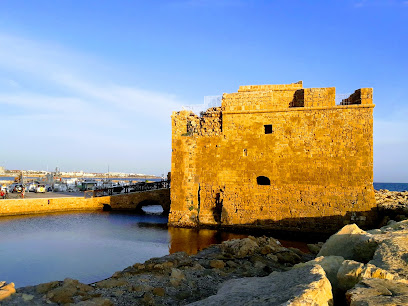
Kykkos Monastery
Discover the spiritual and cultural heritage at Kykkos Monastery, a stunning landmark nestled in the Troodos Mountains of Cyprus, renowned for its breathtaking views and history.
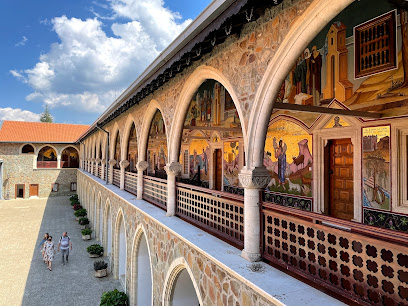
The Edro III Shipwreck
Experience the haunting beauty of the Edro III Shipwreck, a captivating tourist attraction on the shores of Peyia, Cyprus, filled with history and stunning views.
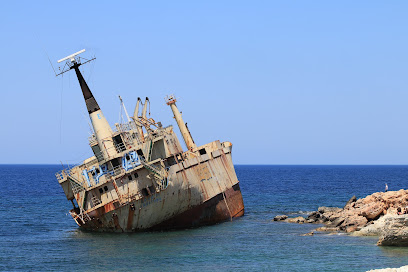
Adonis Baths Waterfalls
Experience the enchanting Adonis Baths Waterfalls in Cyprus, where crystal-clear waters meet lush landscapes, perfect for relaxation and adventure.
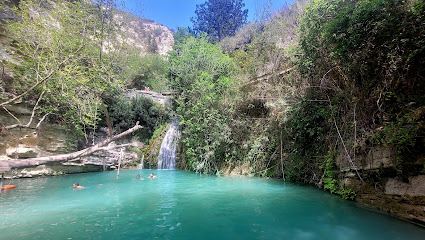
Paphos Castle
Explore Paphos Castle: a historic fortress offering panoramic views, cultural events, and a glimpse into Cyprus's rich past.
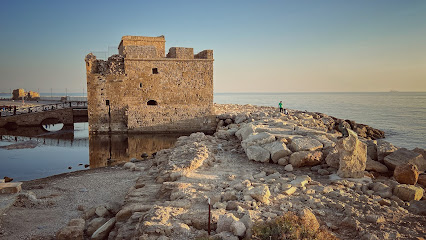
Avakas Gorge Nature Trail
Experience the enchanting beauty of Avakas Gorge Nature Trail, a top hiking destination in Cyprus, featuring stunning landscapes and rich biodiversity.
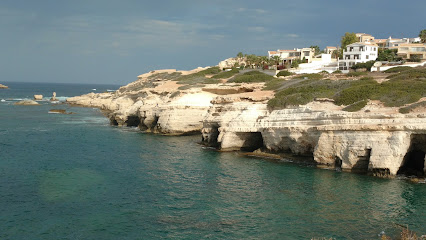
Akamas National Forest Park
Explore Cyprus's wild side in Akamas National Forest Park: hiking, diverse flora & fauna, stunning coastlines, and mythological history await!
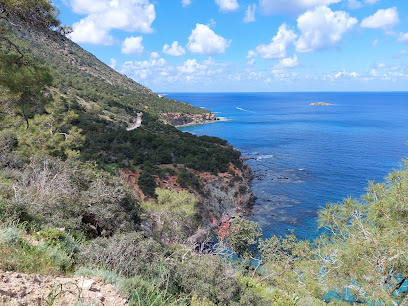
Paphos Mosaics
Explore the Paphos Mosaics in Cyprus, a stunning archaeological site showcasing exquisite Roman-era artistry and captivating historical narratives.
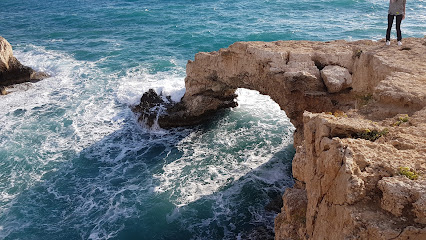
Paphos Forest
Explore the serene landscapes and diverse wildlife of Paphos Forest, a stunning nature preserve in Cyprus perfect for outdoor activities and relaxation.
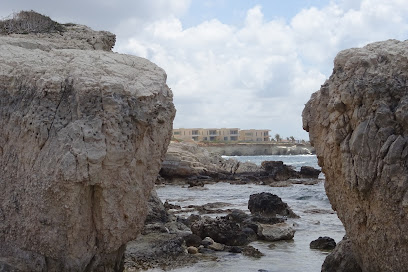
White River Beach
Discover the serene beauty of White River Beach in Peyia, Cyprus: a tranquil escape with stunning views and crystal-clear waters.
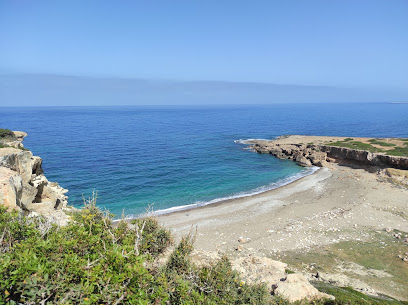
Sea Caves Peyia Paphos
Experience the stunning natural beauty of Sea Caves Peyia in Paphos, Cyprus, a perfect destination for nature lovers and adventure seekers alike.
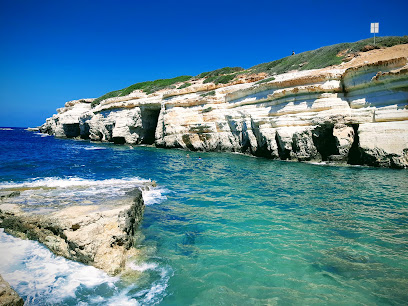
House of Dionysus
Explore the House of Dionysus in Paphos, Cyprus; a stunning archaeological site showcasing intricate mosaics and rich Roman history.
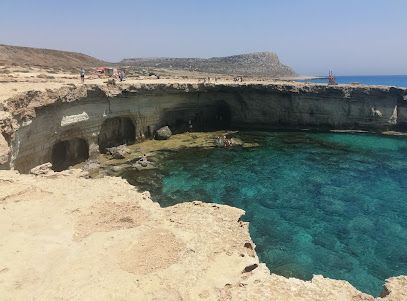
Agios Georgios Church
Experience the spiritual and architectural splendor of Agios Georgios Church in Cyprus, a serene retreat that reflects the island's rich history and culture.
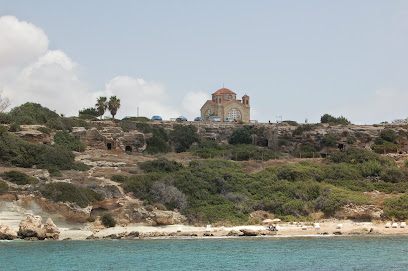
Agios Neofytos CatPark
Discover the charming Agios Neofytos CatPark in Tala, Cyprus, a unique animal park dedicated to feline friends and their welfare.
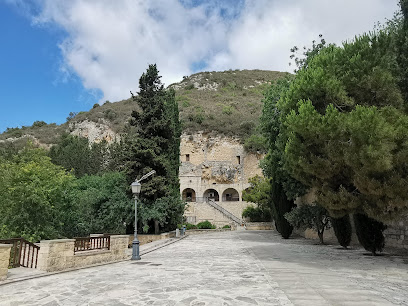
Unmissable attractions to see
The Place
Immerse yourself in Cypriot culture at The Place in Paphos: witness artisans, craft souvenirs, and discover authentic local products, from pottery to wine and handmade soaps.
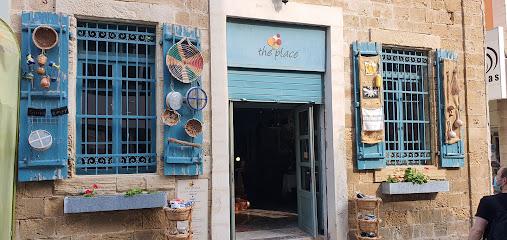
Smigies Nature Trail
Discover Cyprus's natural beauty on the Smigies Nature Trail: panoramic views, diverse ecosystems, and historical remnants await in the heart of the Akamas Peninsula near Neo Chorio.
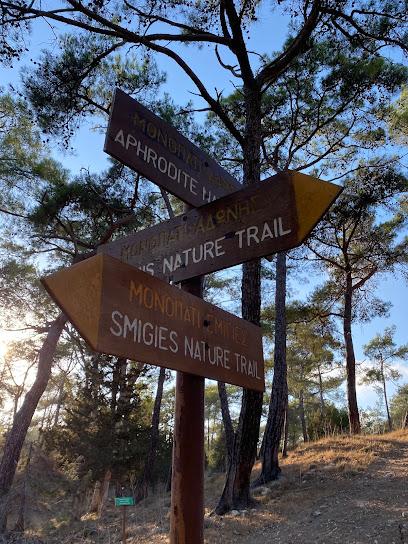
En Plo, Gallery
Discover Cypriot artistry at En Plo Gallery in Paphos, a cultural haven showcasing diverse contemporary artworks, exhibitions, and events, reflecting the island's rich heritage and creativity.
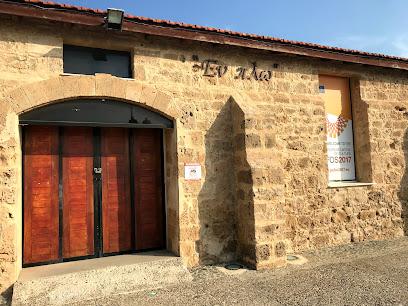
Aphrodite Delights - Loukoumia Geroskipou
Discover the sweet legacy of Cyprus at Aphrodite Delights in Geroskipou, where traditional Loukoumi has been crafted with passion and care since 1895, offering an authentic taste of the island's heritage.

aphrodite lava stones
Hike through ancient volcanic landscapes near Neo Chorio, Cyprus, and discover the mythical Aphrodite Lava Stones, a geological wonder steeped in local legend and natural beauty.
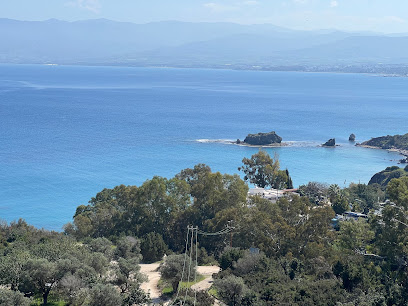
Latchi
Discover Latchi, Cyprus: A charming coastal village with pristine beaches, fresh seafood, and stunning access to the Akamas Peninsula and Blue Lagoon boat trips.
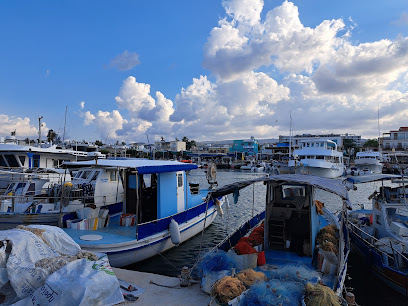
Avakas Viewpoint
Discover breathtaking panoramic views of Cyprus's Akamas Peninsula from Avakas Viewpoint, a must-see destination near Kathikas, offering stunning scenery and tranquil escape for nature lovers.

Polis mural: 'Fish Covered in Plastics and Chemicals”
A thought-provoking mural in Polis Chrysochous, Cyprus, blending art and environmental awareness, sparking conversations about sustainability and marine conservation in a serene setting.

Essential places to dine
Oniro By The Sea
Experience exquisite Mediterranean cuisine with stunning sea views at Oniro By The Sea in Peyia, Cyprus.
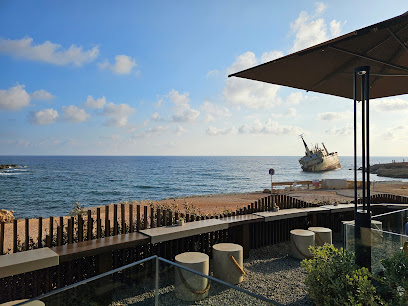
Baths Of Aphrodite Restaurant
Experience authentic Cypriot flavors with breathtaking views at Baths of Aphrodite Restaurant in Neo Chorio.
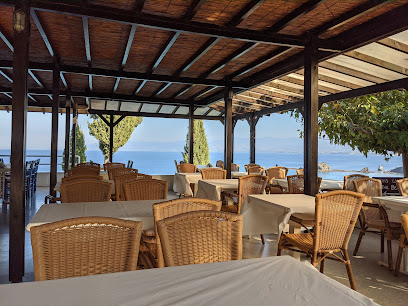
Moustakallis Tavern
Experience the essence of Cypriot cuisine at Moustakallis Tavern in Poli Crysochous – where tradition meets taste.
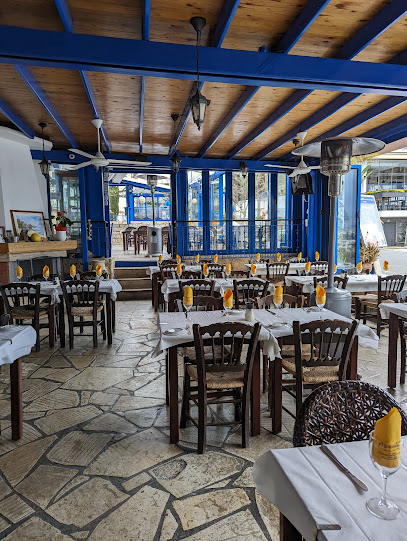
Ταβέρνα Η Παρέα
Discover traditional Cypriot flavors at Ταβέρνα Η Παρέα - where every meal tells a story.
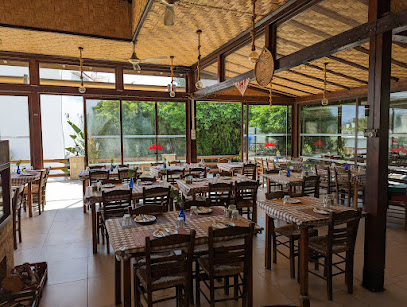
Viklari
Experience authentic Cypriot flavors at Viklari Restaurant, known for its exquisite grilled meats and stunning natural surroundings.
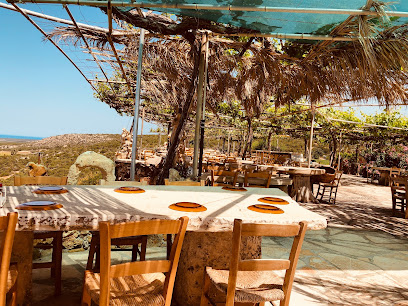
Porto Latchi Restaurant & Fish Tavern
Discover Porto Latchi Restaurant & Fish Tavern: where fresh seafood meets stunning Mediterranean views in beautiful Cyprus.
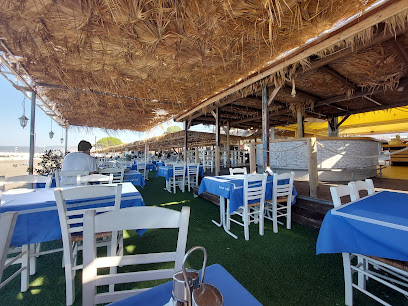
Sea Caves Restaurant
Experience stunning views and authentic Cypriot flavors at Sea Caves Restaurant - where every meal is a seaside delight.
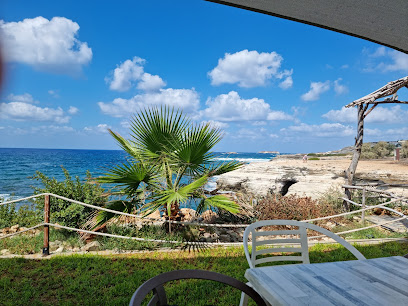
YIALOS BEACH GRILL HOUSE
Discover authentic Cypriot flavors at Yialos Beach Grill House in Neo Chorio - where delicious food meets breathtaking sea views.
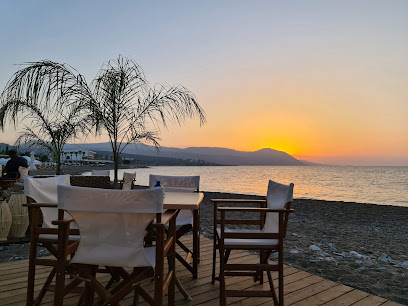
Polis Herb Garden-Restaurant
Discover authentic Cypriot cuisine amidst lush gardens at Polis Herb Garden-Restaurant in Poli Crysochous.
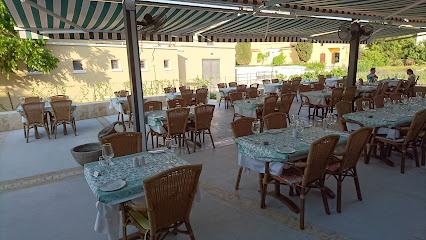
Restomare Latchi
Discover delicious Cypriot cuisine at Restomare Latchi with stunning Mediterranean views in a charming coastal setting.
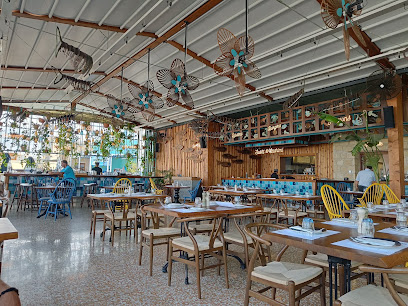
Island Beach Bar and Restaurant
Experience exquisite dining at Island Beach Bar and Restaurant with breathtaking sea views in Poli Crysochous, Cyprus.
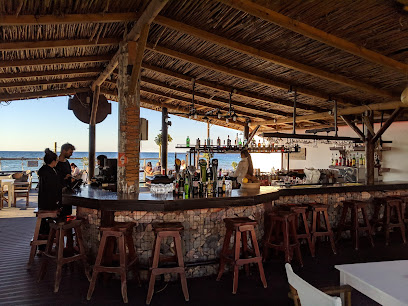
La Plage Restaurant
Experience exquisite Cypriot cuisine with stunning sea views at La Plage Restaurant on Municipal Beach in Polis.
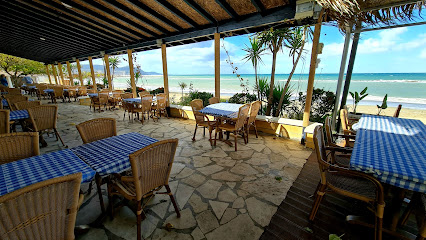
Kyparissos Restaurant
Experience authentic Cypriot cuisine at Kyparissos Restaurant in Kathikas - where every dish tells a story.
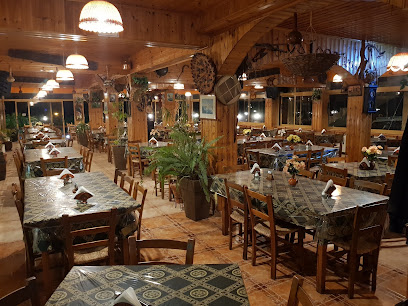
Periyiali Restaurant
Experience authentic Cypriot cuisine at Periyiali Restaurant, where fresh seafood meets breathtaking Mediterranean views in Latsi.
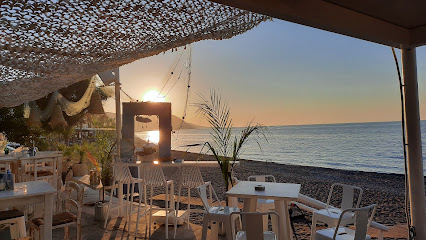
Ttakkas Bay Restaurant
Experience authentic Cypriot cuisine with stunning sea views at Ttakkas Bay Restaurant in Neo Chorio.
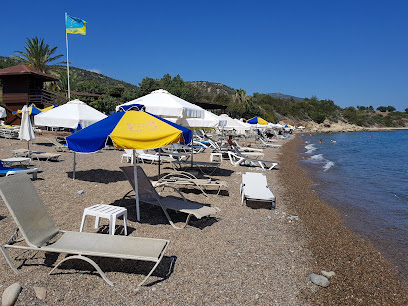
Markets, malls and hidden boutiques
Kings Avenue Mall
Experience the ultimate shopping adventure at Kings Avenue Mall in Paphos, where international brands meet local boutiques amidst a vibrant atmosphere.
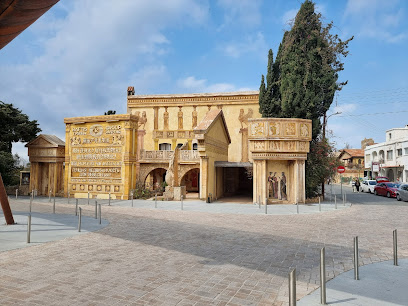
Paphos Airport - Cyprus Airports Duty Free Shops
Explore the vibrant duty-free shopping experience at Paphos Airport, Cyprus, featuring international brands, local delicacies, and great prices.
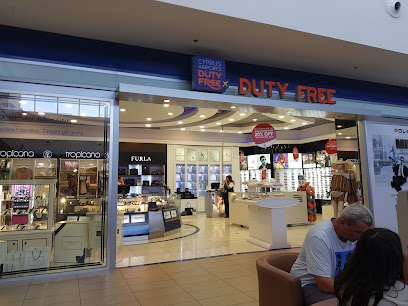
The Place
Explore the vibrant artistry of Cyprus at The Place, where unique gifts and cultural treasures await every visitor in Paphos.
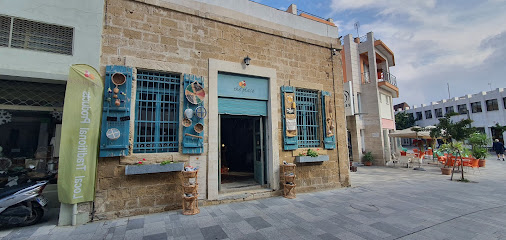
Kaites Kiosk
Discover Kaites Kiosk in Poli Crysochous, Cyprus - your essential supermarket for local goods, fresh produce, and souvenirs while exploring the island.
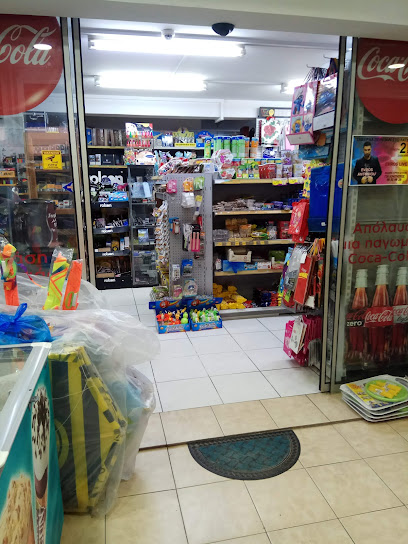
Crystal Shop Cyprus
Explore the mystical realm of Crystal Shop Cyprus, where unique gifts and metaphysical treasures await in Paphos.
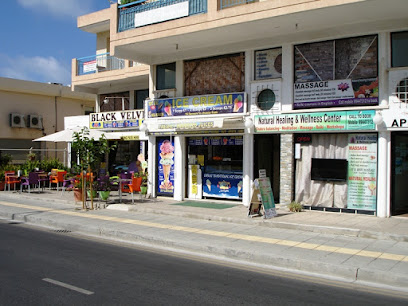
Oasis Unspoken Gem
Discover the perfect coastal coffee escape at Oasis Unspoken Gem, where quality brews meet stunning Mediterranean views.
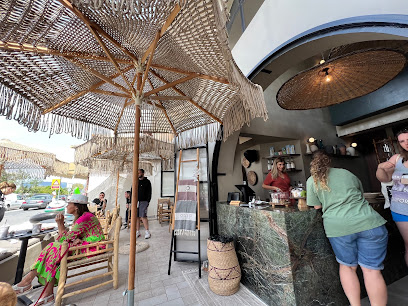
COFFEE ISLAND
Discover exceptional coffee and stunning views at Coffee Island, near Latchi Lighthouse in beautiful Poli Crysochous, Cyprus.
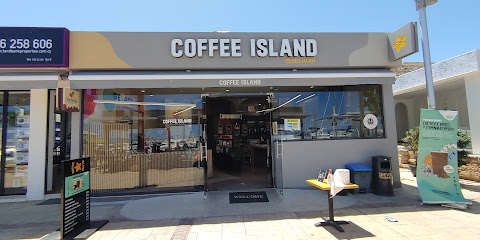
GreenRefresh
Discover the cozy ambiance and quality brews at GreenRefresh, the ultimate coffee shop experience in Neo Chorio, Cyprus.
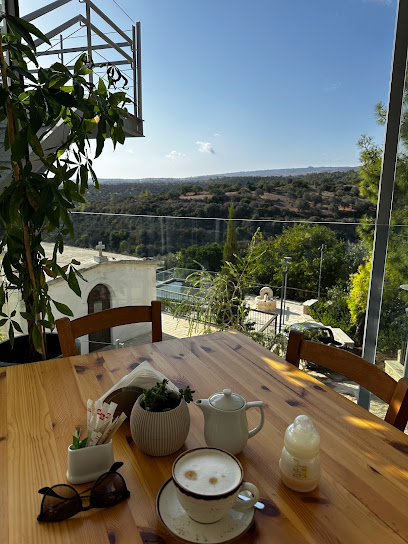
Mas supermarket
Discover local flavors and fresh produce at Mas Supermarket in Poli Crysochous, Cyprus - a must-visit for all your grocery needs.
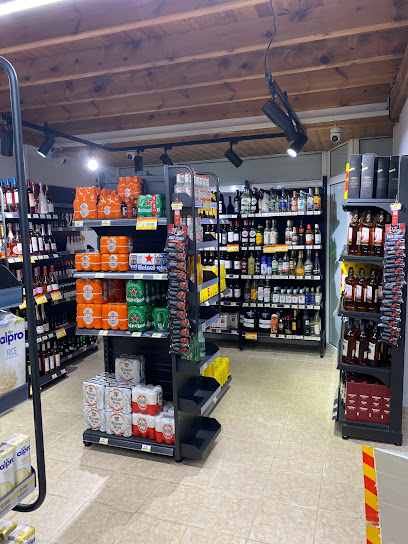
TCs plant-based grocery
Explore TCs Plant-Based Grocery in Cyprus for fresh organic foods, eco-friendly products, and a delightful shopping experience.
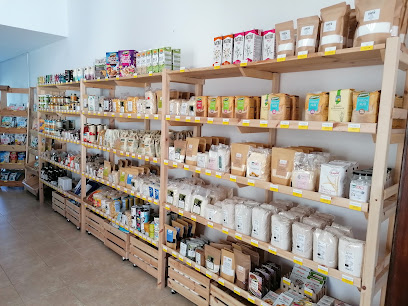
That Nice Shop
Explore That Nice Shop in Poli Crysochous for unique gifts and authentic artistic handicrafts that reflect the rich culture of Cyprus.
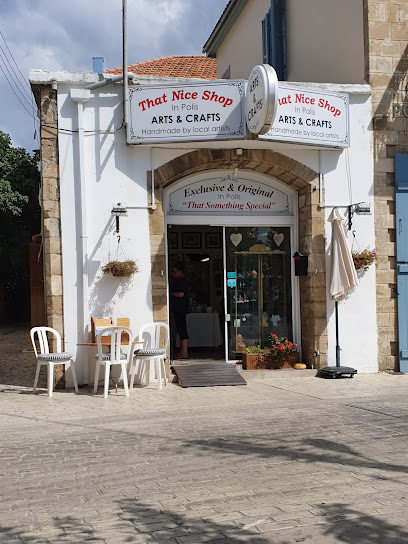
Bags Of Fun
Discover unique vintage jewelry in Poli Crysochous at Bags Of Fun, a charming store offering exquisite craftsmanship and timeless pieces.
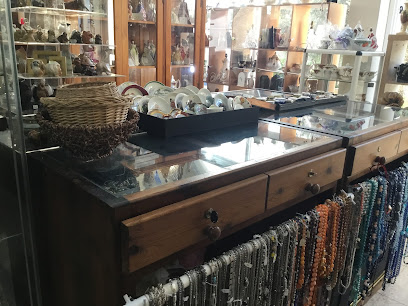
Blue Adventure - Fishing/Diving/Boat Equipment
Explore the depths of adventure at Blue Adventure, your ultimate destination for fishing, diving, and boating equipment in Cyprus.
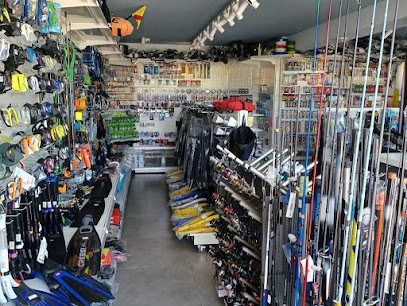
NSO Gear
Discover NSO Gear: Your essential outdoor clothing and equipment shop in Poli Crysochous, Cyprus, for all your adventure needs.
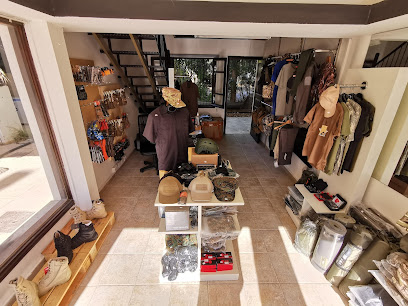
Have A Look Souvenir & Gift Shop.
Discover the best souvenirs, clothing, and gifts at Have A Look Souvenir & Gift Shop in Paphos, capturing the spirit of Cyprus beautifully.
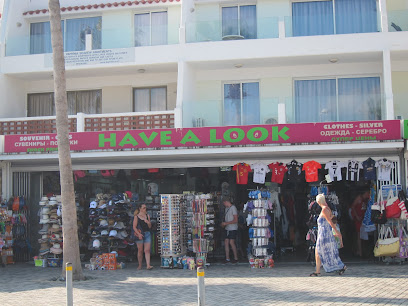
Essential bars & hidden hideouts
Sea You Beach Bar
Discover the vibrant atmosphere and stunning views at Sea You Beach Bar in Kissonerga, Cyprus – a perfect seaside getaway for relaxation and fun.
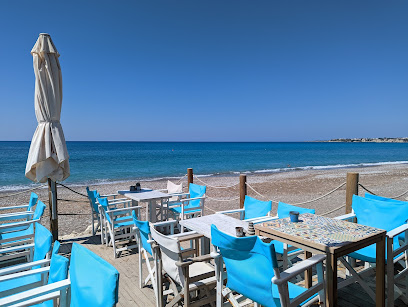
Moustakallis Tavern
Experience the authentic flavors of Cyprus at Moustakallis Tavern, where warm hospitality meets delicious traditional cuisine in a stunning setting.
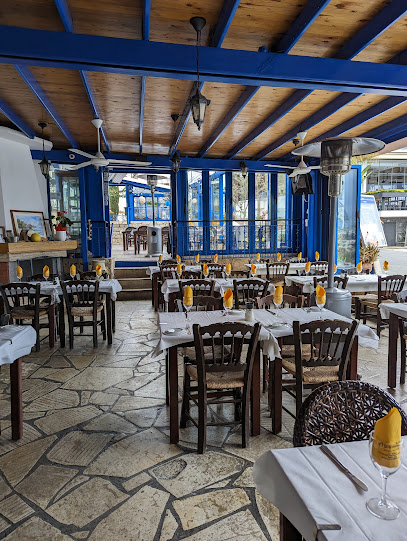
The Wooden Pub
Experience the charm of The Wooden Pub in Paphos, where delightful drinks and a warm atmosphere create the perfect getaway.
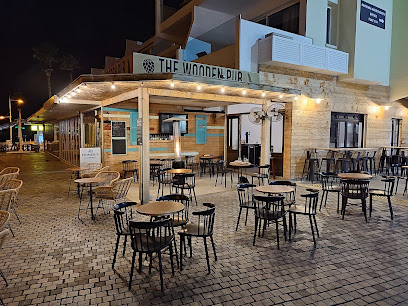
YIALOS BEACH GRILL HOUSE
Discover Yialos Beach Grill House in Neo Chorio, where delicious Cypriot cuisine meets breathtaking sea views for an unforgettable dining experience.
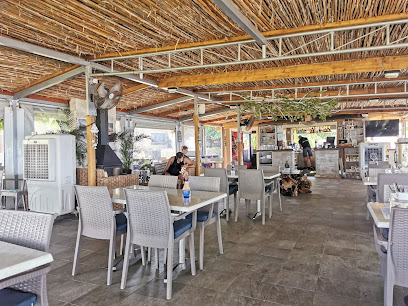
Blazing Saddles Pub - Coral Bay
Experience the lively atmosphere and delicious grilled dishes at Blazing Saddles Pub in Coral Bay, Cyprus, perfect for food lovers and social butterflies alike.
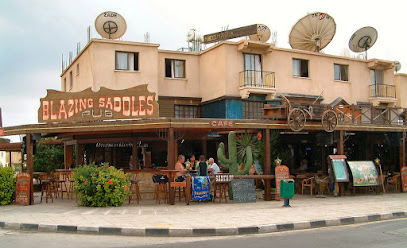
Kikos Bar
Discover Kikos Bar in Coral Bay, Cyprus – a lively pub perfect for drinks, socializing, and enjoying live music in a vibrant atmosphere.
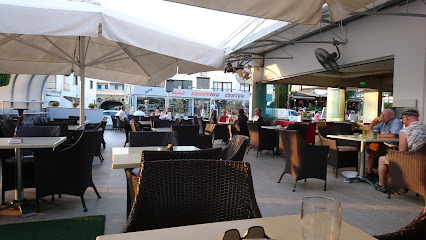
Island Beach Bar and Restaurant
Experience the essence of Cyprus at Island Beach Bar and Restaurant, where delectable cuisine meets breathtaking coastal views.
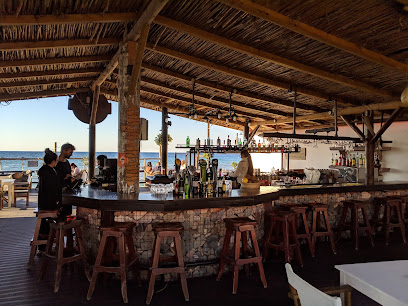
Piedra All Day Cafe Lounge Bar.
Discover the vibrant atmosphere and delectable offerings at Piedra All Day Cafe Lounge Bar in Cyprus, a perfect spot for brunch or cocktails.
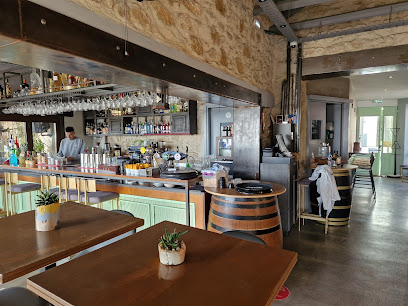
Dionysos Cafe Lounge & Cocktail Bar
Discover the vibrant Dionysos Cafe Lounge & Cocktail Bar, where delightful cocktails meet stunning views in the heart of Coral Bay, Cyprus.
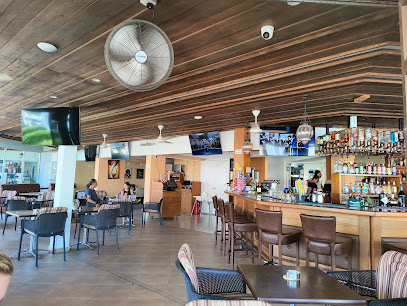
Kleo's Cocktail Bar & Night Club
Immerse yourself in the vibrant nightlife of Coral Bay at Kleo's Cocktail Bar & Night Club, where expertly crafted cocktails and lively entertainment await.
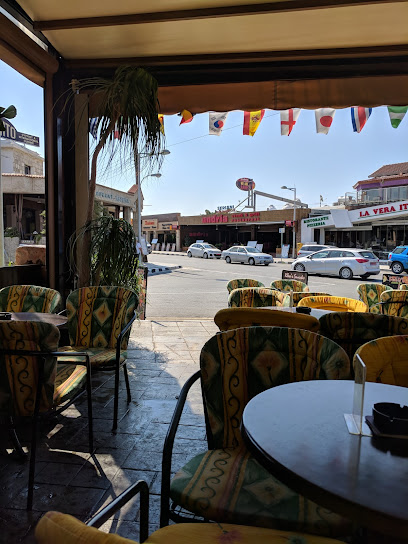
The Brewery Bar.
Discover the vibrant atmosphere of The Brewery Bar in Peyia, Cyprus, where delicious food, refreshing drinks, and live music come together for an unforgettable experience.
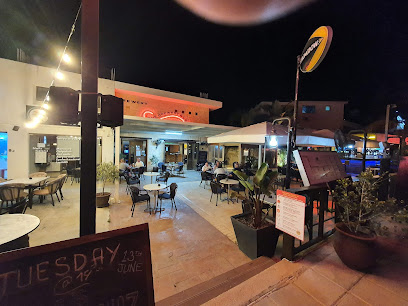
The Local Pub
Experience the heart of Cyprus at The Local Pub, where local flavors meet friendly faces in a cozy atmosphere.
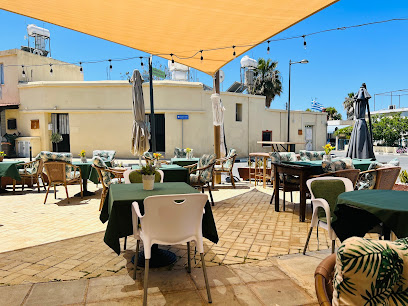
Saddles Café & Bar
Discover the charm of Saddles Café & Bar in Poli Crysochous, where delightful cuisine meets a cozy atmosphere perfect for relaxation.
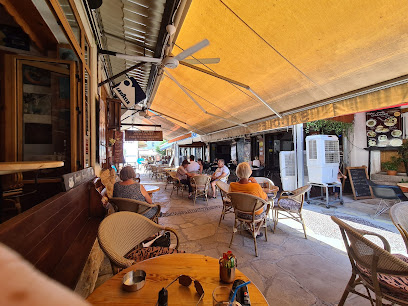
Different Bar
Immerse yourself in the lively nightlife of Paphos at Different Bar, where entertainment and community come together for an unforgettable experience.
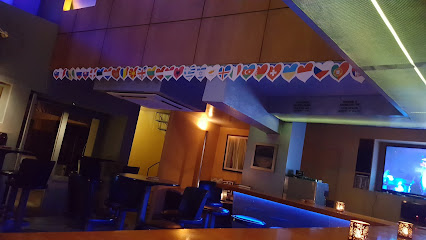
Local Phrases about Akamas Peninsula
-
- HelloΓεια σας
[Yia sas] - GoodbyeΑντίο
[Andio] - YesΝαι
[Ne] - NoΌχι
[Ohi] - Please/You're welcomeΠαρακαλώ
[Parakalo] - Thank youΕυχαριστώ
[Efharisto] - Excuse me/SorryΣυγνώμη
[Signomi] - How are you?Πώς είστε;
[Pos iste?] - Fine. And you?Καλά. Εσείς;
[Kala. Esis?] - Do you speak English?Μιλάτε Αγγλικά;
[Milate Anglika?] - I don't understandΔεν καταλαβαίνω
[Den katalaveno]
- HelloΓεια σας
-
- I'd like to see the menu, pleaseΘα ήθελα να δω το μενού, παρακαλώ
[Tha ithela na do to menou, parakalo] - I don't eat meatΔεν τρώω κρέας
[Den troo kreas] - Cheers!Υγεία!
[Ygeia!] - I would like to pay, pleaseΘα ήθελα να πληρώσω, παρακαλώ
[Tha ithela na plirosou, parakalo]
- I'd like to see the menu, pleaseΘα ήθελα να δω το μενού, παρακαλώ
-
- Help!Βοήθεια!
[Voithia!] - Go away!Φύγε!
[Fiye!] - Call the Police!Καλέστε την Αστυνομία!
[Kaleste tin Astinomia!] - Call a doctor!Καλέστε γιατρό!
[Kaleste giatro!] - I'm lostΈχω χαθεί
[Eho hathi] - I'm illΕίμαι άρρωστος
[Eime arrostos]
- Help!Βοήθεια!
-
- I'd like to buy...Θα ήθελα να αγοράσω...
[Tha ithela na agoraso...] - I'm just lookingΑπλά κοιτάω
[Apla kito] - How much is it?Πόσο κοστίζει;
[Poso kostizi?] - That's too expensiveΑυτό είναι πολύ ακριβό
[Afto ine poli akribo] - Can you lower the price?Μπορείτε να χαμηλώσετε την τιμή;
[Borite na hamilosete tin timi?]
- I'd like to buy...Θα ήθελα να αγοράσω...
-
- What time is it?Τι ώρα είναι;
[Ti ora ine?] - It's one o'clockΕίναι μία ώρα
[Ine mia ora] - Half past (10)Μισή (10)
[Misi (10)] - MorningΠρωί
[Proi] - AfternoonΑπόγευμα
[Apoyevma] - EveningΒράδυ
[Vradi] - YesterdayΧθες
[Hthes] - TodayΣήμερα
[Simera] - TomorrowΑύριο
[Avrio] - 1Ένα
[Ena] - 2Δύο
[Dio] - 3Τρία
[Tria] - 4Τέσσερα
[Tessera] - 5Πέντε
[Pente] - 6Έξι
[Exi] - 7Εφτά
[Efta] - 8Οκτώ
[Okto] - 9Εννέα
[Ennea] - 10Δέκα
[Deka]
- What time is it?Τι ώρα είναι;
-
- Where's a/the...?Πού είναι ένα/το...;
[Pou ine ena/to...?] - What's the address?Ποια είναι η διεύθυνση;
[Pia ine i diefthinsi?] - Can you show me (on the map)?Μπορείτε να μου δείξετε (στο χάρτη);
[Borite na mou dixete (sto charti)?] - When's the next (bus)?Πότε είναι το επόμενο (λεωφορείο);
[Pote ine to epomeno (leoforeio)?] - A ticket (to ....)Ένα εισιτήριο (για ....)
[Ena isitirio (ya ....)]
- Where's a/the...?Πού είναι ένα/το...;
History of Akamas Peninsula
-
The Akamas Peninsula has been inhabited since ancient times, with evidence of Neolithic settlements. Archaeological finds suggest that early communities thrived in this rich natural environment, utilizing its resources for agriculture and trade.
-
Akamas Peninsula is steeped in Greek mythology. It is said to be the location where Aphrodite, the goddess of love and beauty, would meet her beloved Adonis. The Baths of Aphrodite, a natural grotto, remains a significant cultural landmark linked to these ancient myths.
-
During the Classical and Hellenistic periods, the Akamas Peninsula was a strategic location. The ancient city of Marion, located nearby, played a crucial role in regional trade and politics. This area saw influences from both Greek and later Roman civilizations.
-
In the Byzantine era, the Akamas Peninsula was part of the rich tapestry of the Eastern Roman Empire. Numerous churches and monasteries were established, including the Agios Andronikos Monastery, showcasing the religious and cultural development of the region.
-
During the medieval period, the Akamas Peninsula was part of the Crusader Kingdom of Cyprus. The area was fortified, and several castles and watchtowers were built to protect against invaders. The remnants of these structures can still be found scattered across the landscape.
-
Under Ottoman rule, which began in the late 16th century, the Akamas Peninsula continued to be a remote and largely uninhabited area. The Ottomans utilized the rugged terrain for military purposes and established small villages and agricultural communities.
-
The British colonial period saw the Akamas Peninsula being used as a training ground and a strategic military location. The British also initiated several conservation projects to protect the unique flora and fauna of the region, laying the groundwork for modern conservation efforts.
-
In recent decades, the Akamas Peninsula has become a focal point for conservation initiatives. It is recognized as a Natura 2000 site due to its biodiversity, featuring rare species of flora and fauna. Efforts continue to balance ecological preservation with sustainable tourism.
Akamas Peninsula Essentials
-
The Akamas Peninsula is located in the northwest of Cyprus. The nearest international airport is Paphos International Airport, which is approximately 40 kilometers away. From Paphos, you can rent a car or take a taxi to the Akamas Peninsula. Public buses also run from Paphos to Polis, a town near Akamas, from where you can take a local taxi or rent a bike for the final leg of the journey.
-
While visiting the Akamas Peninsula, renting a car is the most convenient option to explore the area thoroughly. For the more adventurous, renting a mountain bike or ATV can be a great way to navigate the rugged terrain. There are also guided tours available, which can provide deeper insights into the area's natural beauty and history. Public transportation is limited, so planning your transportation in advance is crucial.
-
The official currency in Cyprus is the Euro (EUR). Most hotels, restaurants, and shops in and around Akamas accept credit and debit cards. However, it is advisable to carry some cash, especially when visiting remote areas or smaller establishments. ATMs are available in nearby towns like Polis and Paphos.
-
The Akamas Peninsula is generally a safe destination for tourists. However, as with any travel destination, it is advisable to take standard precautions. Avoid leaving valuables unattended and be cautious of your surroundings, especially in crowded places. There are no specific high-crime areas targeting tourists, but it's always best to stay vigilant.
-
In case of emergency, dial 112 for immediate assistance. The nearest medical facilities are in Polis and Paphos. It is recommended to have travel insurance that covers medical emergencies. For minor health issues, there are pharmacies in Polis where you can purchase over-the-counter medications. Always carry a basic first-aid kit, especially if you plan on hiking or engaging in outdoor activities.
-
Fashion: Do wear comfortable and appropriate clothing for outdoor activities. Lightweight and breathable fabrics are recommended due to the hot climate. Avoid wearing overly revealing clothing in more conservative areas. Religion: Do respect local customs and traditions, especially when visiting religious sites. Public Transport: Do plan your routes in advance as public transport options are limited. Always check the local bus schedules. Greetings: Do greet locals with a friendly 'Yia sou' (Hello). A handshake is also a common form of greeting. Eating & Drinking: Do try local delicacies such as souvlaki and halloumi. Don't refuse food offerings, as it is considered impolite.
-
To experience the Akamas Peninsula like a local, visit the small villages scattered around the area, such as Neo Chorio and Ineia, where you can interact with locals and learn about their way of life. Don’t miss out on exploring the Avakas Gorge and the Baths of Aphrodite, both of which offer stunning natural beauty. For a unique experience, consider a boat trip along the coastline, offering a different perspective of the peninsula's rugged cliffs and hidden coves.
Trending Landmarks in Akamas Peninsula
-
Petra tou Romiou (Aphrodite's Rock)
-
Archaeological Site of Nea Paphos
-
Kykkos Monastery
-
The Edro III Shipwreck
-
Adonis Baths Waterfalls
-
Paphos Castle
-
Avakas Gorge Nature Trail
-
Akamas National Forest Park
-
Paphos Mosaics
-
Paphos Forest
-
White River Beach
-
Sea Caves Peyia Paphos
-
House of Dionysus
-
Agios Georgios Church
-
Agios Neofytos CatPark
Nearby Cities to Akamas Peninsula
-
Things To Do in Paphos
-
Things To Do in Kato Paphos
-
Things To Do in Troodos
-
Things To Do in Pissouri
-
Things To Do in Limassol
-
Things To Do in Kyrenia
-
Things To Do in Nicosia
-
Things To Do in Larnaca
-
Things To Do in Famagusta
-
Things To Do in Ayia Napa
-
Things To Do in Protaras
-
Things To Do in Alanya
-
Things To Do in Antalya
-
Things To Do in Konya
-
Things To Do in Batroun










